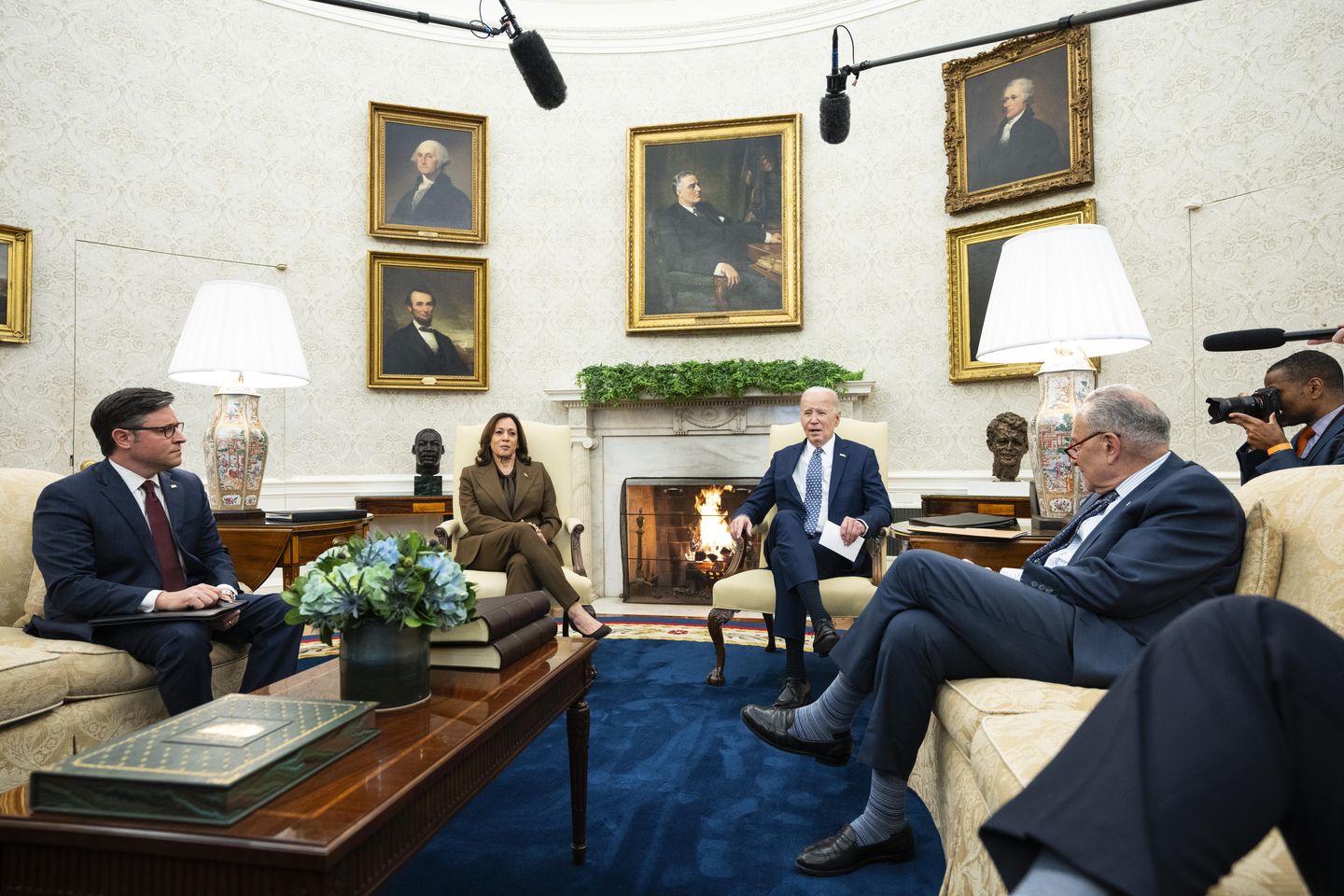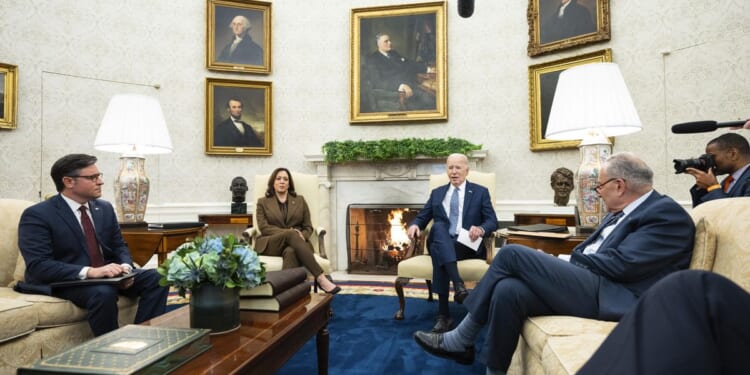
The White House and congressional leaders expressed optimism Tuesday that they will reach a deal to avoid a partial government shutdown ahead of a looming Saturday deadline to keep federal agencies funded.
But there was no apparent movement on a package of military aid for Ukraine and Israel sought by President Biden.
Emerging from a White House meeting with Mr. Biden and other congressional leaders, House Speaker Mike Johnson said he is “very optimistic” that Congress can avert a partial shutdown.
“We believe that we can get to [an] agreement on these issues and prevent a government shutdown, and that’s our first responsibility,” the Louisiana Republican told reporters. “We will get the government funded and we’ll keep working on that.”
Senate Majority Leader Charles E. Schumer and House Minority Leader Hakeem Jeffries, both New York Democrats, said they were positive funding would not lapse, even with just three days remaining this week to complete the work.
White House press secretary Karine Jean-Pierre described the meeting as “incredibly productive,” saying everyone in the room was aware of what the necessary next steps would be.
SEE ALSO: Biden warns of ‘dire’ consequences if U.S. aid not sent to Ukraine, Israel
Senate Minority Leader Mitch McConnell, Kentucky Republican, also attended the meeting but did not speak with the press.
The group tried to hammer out a spending agreement to keep the government funded for the rest of the fiscal year. If they are unable to forge a path on funding, the departments of Agriculture, Energy, Transportation, Veterans Affairs, and Housing and Urban Development will run out of money at midnight Friday.
Under the spending deal brokered by Mr. Johnson, lawmakers have until March 9 to fund the rest of the government, including the Defense, State, Homeland Security and Justice departments.
There has been no sign of progress for months in advancing the individual spending bills, but Mr. Johnson still holds out hope he can get them to the floor for a vote this week.
Another element in the push to avoid a partial shutdown is the House’s 72-hour rule, which requires that lawmakers get three days to review a bill once it is publicly introduced. Mr. Johnson would have to drop the latest possible stopgap by Tuesday night to hit that mark, which is unlikely.
Skipping the rule would further entrench members of Mr. Johnson‘s right flank to vote against another short-term funding patch, and could anger some Republicans who would support another stopgap and are in favor of the three-day rule.
SEE ALSO: Crunch time: Biden hosts congressional leaders to press for Ukraine aid, avoid federal shutdown
Both sides conceded they were far apart on providing aid for Ukraine. Mr. Schumer said the conversation turned “intense” when it shifted to the $95 billion bipartisan foreign aid package approved by the Senate last month but held up in the House because of Republican demands for border security and immigration reforms.
“We told the speaker, ‘Get it done,’” Mr. Schumer said on the White House lawn. “I told him this one of the moments …. that history is looking over your shoulder and if you don’t do the right thing, whatever the immediate politics are, you’ll regret it.”
Mr. Johnson has resisted bringing the security package — which provides aid for Ukraine, Israel and Taiwan — to the House floor unless Mr. Biden makes major changes to the U.S. border policies. He would not commit Tuesday to bringing the package forward.
“We must take care of America’s needs,” he said. “When you talk about America’s needs, you have to talk first about our open border.”
The Senate earlier this month passed the foreign aid bill that includes roughly $60 billion for Ukraine, after House Republicans rejected a bipartisan proposal that linked the funding to immigration reforms.
Mr. Johnson has dismissed the funding package because it did not include border changes. He has also griped that the administration has not provided answers on the endgame in Ukraine in its war with Russia, and how additional aid would achieve that goal.












